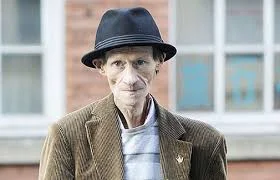Tony Benn (1925-2014)
March 14, 2014
THE ONE-LINE Twitter tributes to Tony Benn from a procession of interchangeable political pygmies not fit to lace his boots almost invariably describe him as a “towering figure” with whom “one did not always agree.”
Benn was indeed a towering figure, from an era that is in many ways best forgotten. I hero-worshipped him, and would even practice his various well-rehearsed formulations about democracy, power, accountability and the Royal Family, but we shouldn’t let nostalgia for an extinct mode of Socialism hide the fact that it was a miserable, divided time.
The papers make room for the claim that Benn destroyed the Labour Party and gave a free ride to Thatcher for more than a decade, and many "moderate" Labour voices from that era – Neil Kinnock, David Owen, Roy Hattersley, Shirley Williams – have been conspicuous by their absence on the morning of his death.
His idealised view of the British proletariat was one that only a securely upper middle-class man could have, and it led him to misunderstand the whole appeal of Thatcherism, which was sustained by tabloid-style populism, a suspicion of foreigners, layabouts and arts lovers, and an overwhelming desire not to be imprisoned in old-fashioned, sentimentalised working-class lives built around mining, cotton mills, brass bands and unions.
Sadly, the sort of politics that Benn envisaged – a siege economy run by unions, syndicates and government-sponsored industrial conglomerates – is so far from the equilibrium of human nature that it was as bound to end in failure as Stalinism itself. But Benn believed in it until the end.
The cry of Socialists the world over is: Socialism – it has never been tried. Still, what has emerged in place of Benn’s conviction politics is the conviction that it should never ever be tried under any circumstances, that all we can do is fuss about at the edges of injustice because to do anything else would risk opposition or controversy.
And now, what is left on the morning of his death is a curiously neutered Tony Benn, Benn the national treasure, Benn the harmless tea-drinking eccentric who spoke with passion but got everything wrong. A neutered Tony Benn who would surely be horrified by the tributes pouring in from the likes of David Cameron and Boris Johnson and Nigel Farage. “A towering figure with whom I disagreed on almost everything.”
Amid all those tributes, it is amazing how much of him has been forgotten. The times were dangerous and sinister. As the sharp and saturnine Harold Wilson, one of the greatest minds of his generation, began his dishevelled descent into madness and incoherence before making way for the dreary placeman Callaghan, every right-winger in the country was convinced that Britain was already half-way to Stalinism and that Benn was the ferryman carrying us all to Hell. Some were even preparing for counter-revolution. Benn’s diaries are strewn with almost throwaway references to IRA bombs going off outside his flat and casual allegations that he was on the hit list not only of MI5 assassins but also the terrorist Carlos the Jackal. The intelligence community had bugged his offices and his home, launched dirty trick after dirty trick (including scurrilous suggestions that he smoked dope and participated in orgies). Then, of course, there were the death threats: “We regret that your husband is going to be killed and that you will be a widow, but it is in the public interest,” said a letter sent to his wife from a group calling itself Defenders of Free Enterprise.
He was mocked, mercilessly, for his earnestness, his po-faced leaps to the left, for his (often quite justified) paranoia and for his late-career diplomatic efforts to persuade the world that Saddam Hussein wasn’t the monster the imperialists in Washington were making him out to be, but he was clearly a kind and devoted man with nary a trace of careerism or opportunism. Do they make characters like him any more? Would a twenty-first century Tony Benn be inclined go into politics these days? Would his idiosyncrasies have survived the all-powerful Party machines, and the all-powerful twenty-four hour media hunting for signs of weaknesses like packs of hyenas circling a wounded zebra? Perhaps that is what we are really nostalgic for on this sad Spring morning in 2014: for a mythical age of innocence when politicians genuinely sought improvements and electorates didn’t seek to ridicule them for it.






